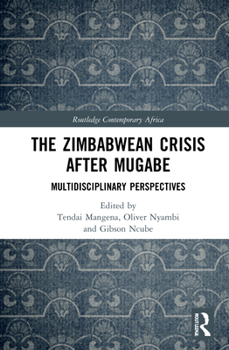The Zimbabwean Crisis after Mugabe: Multidisciplinary Perspectives
This book examines the ways in which political discourses of crisis and 'newness' are (re)produced, circulated, naturalised, received and contested in Post-Mugabe Zimbabwe.
Going beyond the ordinariness of conventional political, human and social science methods, the book offers new and engaging multi-disciplinary approaches that treat discourse and language as important sites to encounter the politics of contested representations of the Zimbabwean crisis in the wake of the 2017 coup. The book centres discourse on new approaches to contestations around the discursive framing of various aspects of the socio-economic and political crisis related to significant political changes in Zimbabwe post-2017. Contributors in this volume, most of whom experienced the complex transition first-hand, examine some of the ways in which language functions as a socio-cultural and political mechanism for creating imaginaries, circulating, defending and contesting conceptions, visions, perceptions and knowledges of the post-Mugabe turn in the Zimbabwean crisis and its management by the "New Dispensation".
This book will be of interest to scholars of African studies, postcolonial studies, language/discourse studies, African politics and culture.





